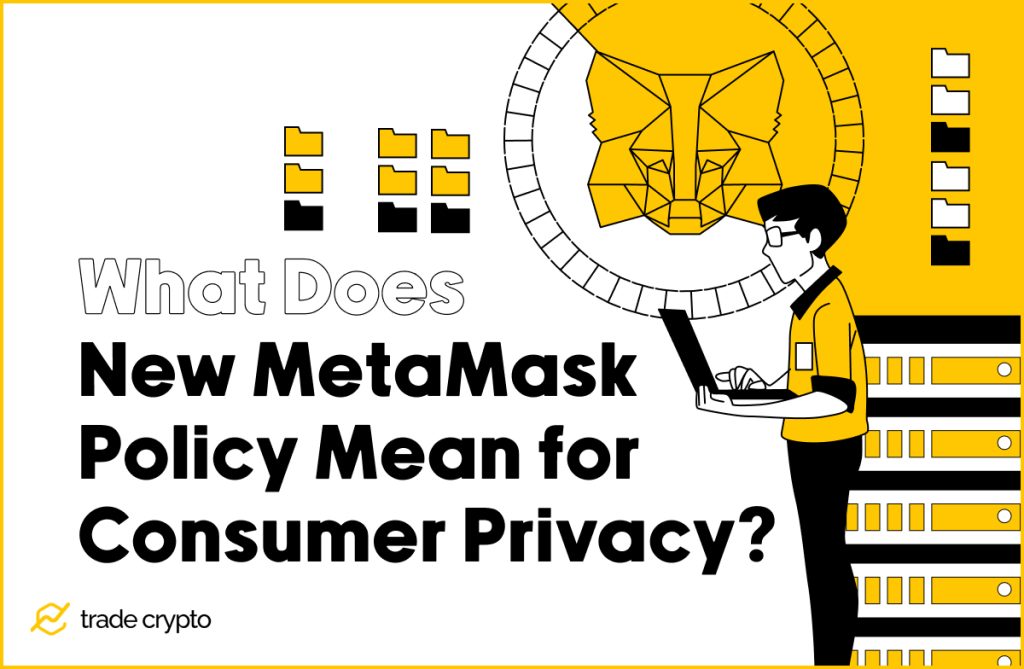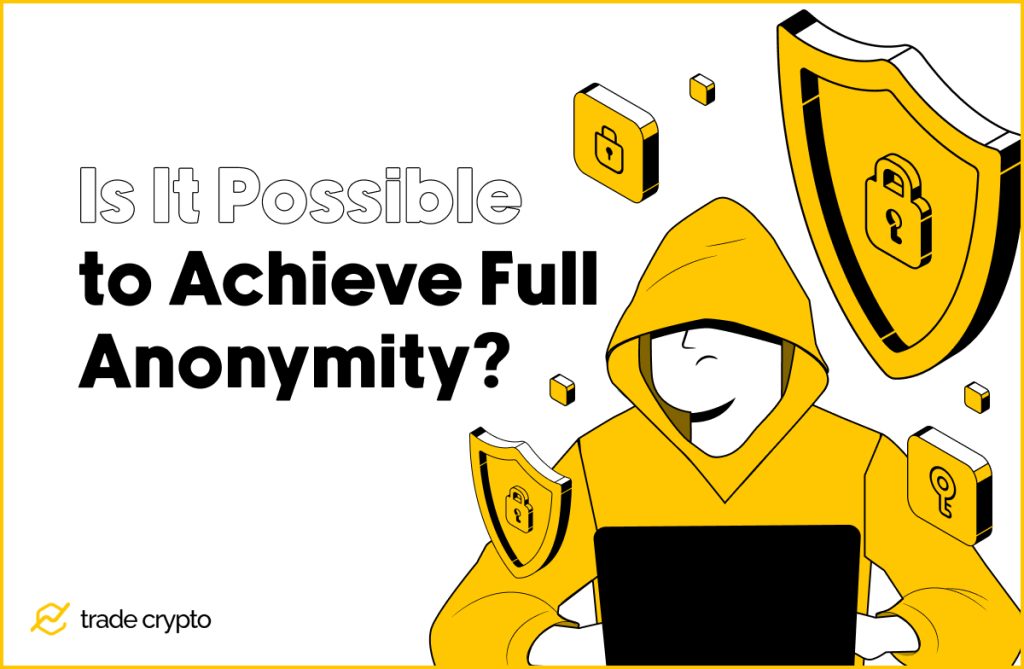Table of Contents
One of the biggest misconceptions in our industry is that cryptocurrencies are used for masking real-world identities. Despite physical cash accounting for much larger illicit financing than crypto, we continuously see a false narrative around cryptocurrencies being used for money laundering and whatnot.
Anonymity in crypto is a puzzling matter because, on the one hand, users’ identities are displayed not as names but with a string of numbers and letters, which is called a wallet address. But on the other hand, the entire history of transactions is published on the blockchain technology ledger that anyone can access through a block explorer like Etherscan or SolScan.
So, how does a network that makes information publicly verifiable provide any anonymity to crypto transactions? This article will provide the answer and establish how anonymity is achieved in crypto.
How Do Bitcoin Transactions Work?

Before we explain the anonymous nature of crypto transactions, let’s quickly understand how a transaction is executed and appended on a public blockchain. For familiarity, we are choosing the most popular cryptocurrency, bitcoin.
Bitcoin blockchain enables peer-to-peer value exchange as a virtual currency, BTC. To send BTC to another person, you must have their public key. A public key is similar to an email or username you use to identify the receiver’s bitcoin address. There is another key called a private key, which is used to authorize and sign transactions.
Once the transaction is confirmed, it must be broadcasted to the entire bitcoin network for verification. The network participants or ‘miners’ then check the transaction details and generate a new block. If the new block is validated, it will be added to the bitcoin blockchain. As a result, transaction details, including bitcoin addresses, dates, times, and BTC amounts, will be visible on the public ledger.
But does this mean your identity is revealed? Well, it’s not that simple. Let’s now understand how tracking crypto transactions work.
Can You Trace Cryptocurrency Transactions?

When you send crypto assets in a P2P fashion, your identity will not be directly revealed on the blockchain. However, the address you used to perform blockchain transactions can be leveraged to find your real identity. So, crypto transactions are pseudonymous in nature, and discovering personal details is not impossible.
Even when advanced on-chain forensic tools weren’t available, connecting the dots and finding people’s real identities was possible. For example, when the creator of Silk Road was caught selling illegal drugs using cryptocurrencies, the FBI officials ensured his laptop was open to extract all wallet addresses and find everyone involved.
Nowadays, users must complete their KYC verification with regulated exchanges before making any transaction. This further simplifies the process of finding your real-world identity, because your address will be linked to a centralized exchange you used to withdraw and deposit funds.
You can argue that giving personal details beats the purpose of using crypto. But, with continuous hacks and exploits robbing millions of dollars, law enforcement agencies are putting pressure on companies, leaving them with no other option.
What Does New MetaMask Policy Mean for Consumer Privacy?

Crypto software wallets have been on the rise for managing digital tokens and NFT assets, considering the lack of reliability of centralized exchanges and lenders. But, with the increase in regulations, these software wallets are also changing their guidelines in favor of the regulators. The latest example is MetaMask.
The parent company of MetaMask, ConsenSys, released a new version of their privacy policy that highlighted a massive change in consumer privacy rights. From now on, the IP and wallet addresses of people using MetaMask’s default RPC application, Infura, will be collected. As expected, the crypto community was not happy. While some felt this was inevitable, others think it’s unacceptable to tie IPs to a crypto transaction for tracking purposes.
Seeing the negative reaction, ConsenSys shared a statement saying user data will not be exploited and nothing regarding personal privacy policy has changed. The blog also suggests users explore other alternatives to Infura while remaining cautious of their data collection practices.
While the policy change can be bad timing, it clearly shows where the industry is heading regarding consumer privacy. For so long, we thought self-custody wallets would give us anonymity. But that no longer remains the case. At the same time, this move can prevent loss of funds due to hacks, as MetaMask can share accurate information for law enforcement to act upon.
Is It Possible to Achieve Full Anonymity?

The current blockchain infrastructure doesn’t allow private transactions without using secondary tools like coin mixers. A crypto mixer is a privacy tool, shuffling transactions to different addresses and removing the link between the sender and receiver addresses. One of the well-known mixers was Tornado Cash. It was recently banned after several hackers used the tool to launder money stolen from DeFi protocols.
So, even when someone uses an exchange to send crypto assets, it can be challenging to find their identities if they use such privacy tools. Another struggle faced by on-chain forensics is when hackers use dozens of wallets to disperse illicit funds, making it harder to trace them back to the common owner. If privacy tools are not helping, you can still use privacy-focused blockchains like Monero and Zcash.
Monera provides completely anonymous transactions by ring signatures. In the case of Zcash, it uses advanced cryptography involving zero-knowledge proofs for users to shield their transactions. The difference between the two is that Zcash offers an option to choose between transparent and shielded transactions, while Monero offers only private transactions.
Closing Thoughts
Any crypto transaction linked to a wallet address used to receive or send funds to exchange immediately loses anonymity. For the public, it will be hard to identify the user’s identity. But anyone can track the address and verify if it’s associated with suspicious transactions.
So, it’s becoming incredibly difficult for hackers to launder money using the crypto route, and the road ahead with better regulation should instill more confidence in users. However, it’s important to acknowledge that current blockchains are not suitable for everyday payments. If someone can look at our account balances and see every transaction we make, financial privacy is obstructed.
Crypto Ping Pong Digest
Trash style news. You will definitely like














